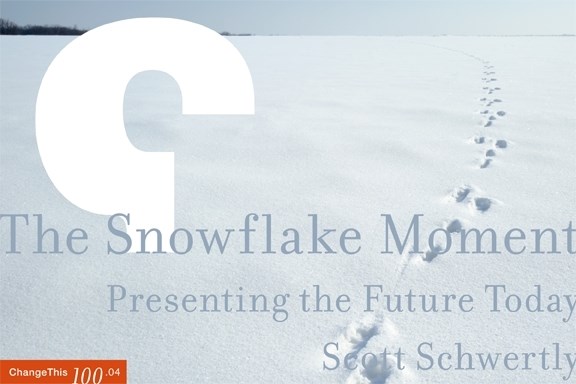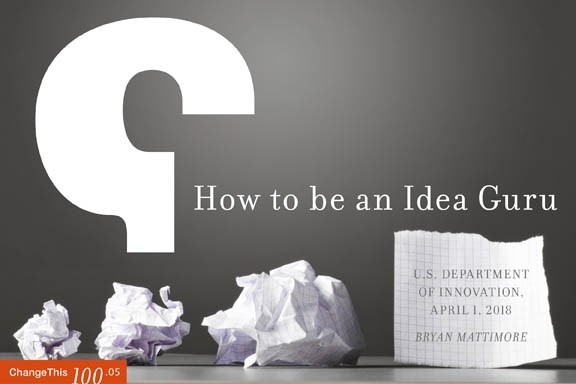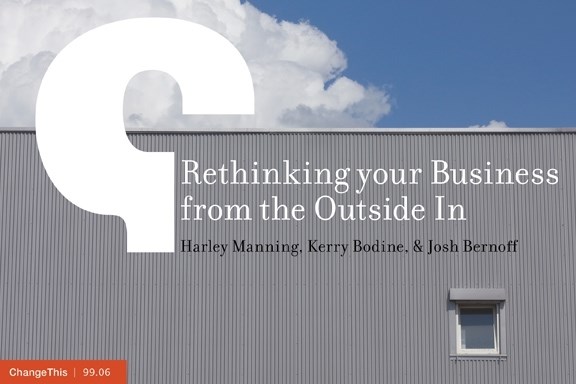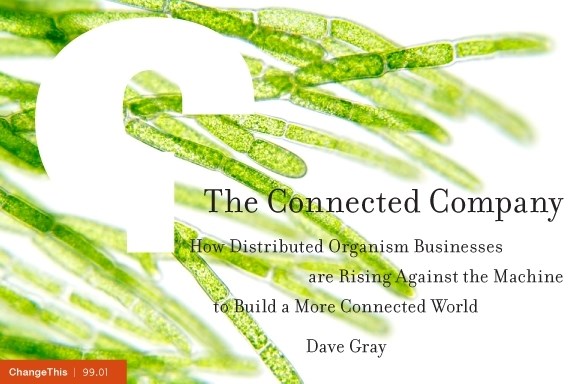ChangeThis RSS
"Okay, you have gotten the memo on improving skill: 10,000 hours, hard work, deliberate practice, grit, and attentive teacher. We've all heard it. You also recognize that in many of life's activities, the results you achieve combine skill and luck. No debate there. Now, what if I told you that in many cases improving skill leads to results that rely more on luck? That's right. Greater skill doesn't decrease the dependence on luck, it increases it. If you have an interest in sports, business, or investing, this lesson is for you."
Continue reading
"The snowflake moment we idolize, that final and glorious crystalline state which Bentley captured on black velvet time and time again, does provide justification for everything else. It is the end, and so must mean something, must make a bold statement about the substance and quality of our existence. But the snowflake moment is just one of a countless million moments, an isolated still shot of an existence that is predominantly defined by its very motion. We are what we do every day. Nothing more.
Scientists have proved the value of diversity in so many different ways that they almost seem to disprove the fundamental concept. Darwin thought the variety among finches on Galapagos derived from absolute necessity: adapt or die. And yet other scientists have found that diversity among species is greatest in times of relative ease and abundance: hard times keep the genetic nose to the grindstone, but when survival is easily achieved DNA begins to flex and bend. Again, the discrepancy seems insurmountable, and this seems true for presentation styles, too: some branch out as a last-ditch effort when everything else has gone wrong; others push the envelope of convention at the beginning of each day. This is not a discrepancy. It is a paradox."
Continue reading
"Please Note: The following is a transcript of the introductory workshop for the Department of Innovation's, How to be an Idea Guru program, held from 10:00 AM to 12:00 PM on April 1, 2018 at the Department of Innovation's Training Center in Washington, DC. The Presenter is Dannel Malloy, Secretary of the Department of Innovation. The Guest Speaker is Bryan Mattimore, Cofounder and Chief Idea Guy at The Growth Engine Co.
I would like to welcome all of you who are here in person, as well as the other 5,300 of you who are viewing this workshop on-line. This is the Department of Innovation's kick-off meeting for the How to be an Idea Guru training program. My name is Dannel Malloy, and I am the Secretary of the Department of Innovation. As many of you know, the Department of Innovation was created in early 2017 to deliver the new administration's promise to restore the greatness of American ingenuity to every institution within our society. Our mission is to "pioneer, popularize, and promote the application of state-of-the-art ideation and innovation processes to generate new ideas for the benefit of our citizens, our institutions, and the U.S. economy."
Continue reading
"If you read the pages of the Wall Street Journal you would come to believe that business is about big deals—about multi-billion dollar acquisitions, massive pay packages for executives, macroeconomic forces, stuff like that.
In fact, the secret of success is in the little things. Billions of small decisions. [...]
Spend a few moments with this essay, and we'll show you three things. First, customer experience is central. ... Second, customer experience is hard, because it's not just about your front-line customer-facing employees. ... Third, delivering a great customer experience requires discipline—or more accurately, six disciplines that cut across every element of how your company operates."
Continue reading
"Companies are not really machines, so much as complex, dynamic, growing systems. After all, companies are really just groups of people who have banded together to achieve some kind of purpose. [...]
For many years the machine view has prevailed, and many companies are designed as information-processing and production machines. But information processing is not learning. Production is not learning. Learning is a creative process, not a mechanical one. Many critical factors in business cannot be easily counted, measured or controlled."
Continue reading










